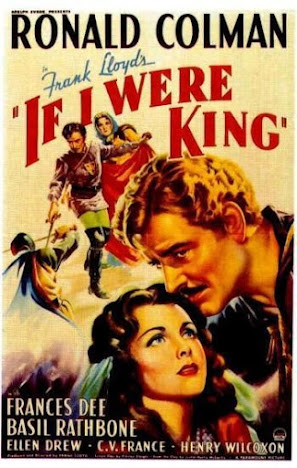Well, maybe I wouldn't need to be king, but just in charge!
In charge of a short-form audio adaptation of "A Christmas Carol," that is.
My recent posts on the Bernard Miles and Frank Pettingell recordings and what I considered to be lapses in the storytelling got me to thinking which elements from the book need to be worked into the adaptation so that listeners get the best experience.
First thing is that I don't think we need any of the social commentary from the book. Whether things are better or worse these days, they're different from how they were in 1843.
But we want the thing to make sense plot-wise and stand a s a cohesive whole. So, if this was your first exposure to the story, you could follow it. So many short adaptations, I think, rely on our prior familiarity with the story to fill in the gaps.
So, let's go through the book a stave at a time and pick out the elements we must have, along with some optional ones if you have, say, 40-odd minutes vs. 20-odd, and what can be ditched.
For Stave One, I want the narrator to tell us that Marley was dead (to begin with) as a door-nail and maybe a bit more, such as Scrooge not having painted out Marley's name.
Then I want the introduction of Scrooge as a "tight-fisted hand at the grindstone" and all.
Ideally, I'd like the exchange between Scrooge and Bob Cratchit about the coal, because I like Scrooge's line at the end for Bob to "buy another coal-scuttle before you dot another i..." I don't want anything left hanging!
Then you need Fred to come into Scrooge's office and get rebuffed. Their conversation can be edited down quite a bit, as long as you get some of the key dialogue.
Then you need the portly gentlemen to come in collecting for charity. That conversation can be edited too, but you need the "surplus population" line from Scrooge because we need the Ghost of Christmas Present to throw it back at him later.
Left out of many adaptations is Scrooge chasing away the caroler who attempted to sing at the keyhole. We want this in here because the first lesson that Scrooge learns when he goes to the past is that he should have been nicer to the kid, as Scrooge himself would have liked more kindness shown to him when he was boy.
Before we leave the office, we need Scrooge to give a hard time about wanting the next day off (with the "poor excuse for picking a man's pocket..." line) and telling him to be early the next day. We want the echo at the end when Scrooge gets to the office before Bob, who was actually late.
We should then follow Scrooge through his melancholy dinner and have him see Marley's face in the knocker. Don't need a lot of the description that goes with that, but just the fact that he saw Marley's face.
We can then cut to Scrooge in his sitting room with his gruel and have Marley's ghost make its entrance. Maybe have the bells ring, maybe not. Such details are incidental, but add to the flavor.
Marley's ghost should talk a bit about its current predicament and warn Scrooge to change his ways and tell him to expect the three spirits. Again, plenty of editing can be done and the point can still be made.
Within the first stave there's a lot of colorful descriptions of various things such as the Lord Mayor's Christmas preparations and how dark it is when Scrooge is going home. I love to read the book and get emerged in the whole thing, but I don't need too much expository narration and would rather keep the story moving along.
These story points I mentioned should get in there, however. And I want the narration and dialogue to be as close as it can to the source material, using the most memorable lines, realizing, of course, that some minor changes need to be made.
Oh, and, yes, the title of this series is just an excuse to plug a good flick starring future audio Scrooges Ronald Colman and Basil Rathbone!


No comments:
Post a Comment